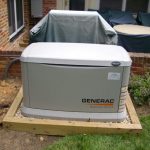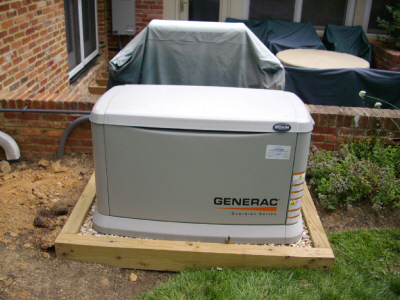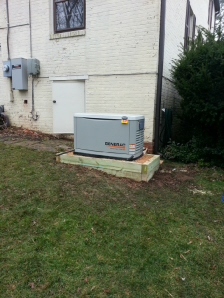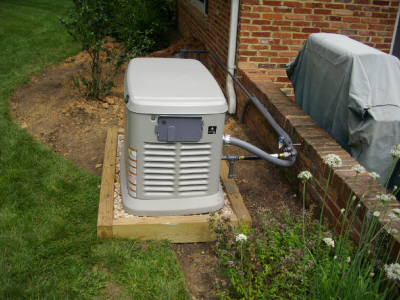Whole House Generator

SERVICE OVERVIEW
Whole House Generators in Virginia
A power outage requires more than just a standby generator. Why settle for powering just a few things when you need fresh food, internet access, and other amenities? New home generators can provide backup power for everything, regardless of how severe the weather is or if there’s a natural disaster.
Benefits of Whole House Generators
- Backup power for the entire home
- Power capacity of 22 to 48 kW
- Lower noise, due to lower engine speeds
- Automotive-style engine superior to the best standby generator
- Liquid cooling for safer operation of large models
- Less frequent maintenance
- Greater fuel efficiency
- Options for load management and A/C shedding
Choosing the Right Whole House Generator
There are just a few basic considerations when choosing the perfect generator. These include:
- Fuel Source: The fuel type is an important aspect of the generator. Some use liquid propane, while others use diesel fuel, and both require sizable storage. Natural gas powered generators require properly sized natural gas meters and lines. Consult product literature, installation manuals, and contractors to determine the best options.
- Size: Unit size and electrical load of major appliances are important for any installation. Once you determine the values, identify starting wattage by multiplying the starting amps by total volts to get how many watts are needed. Select a generator rated at about 20 to 25% higher than your expected peak load.
- Transfer Switch: A whole house generator installation isn’t complete without an automatic transfer switch, which activates the system upon power loss. An internal sensor monitors utility power. If an outage is detected, the system starts the engine and disconnects the utility line power. The switch must match the capacity of the generator.
Whole House Generator Installation Process
Generators are heavy and require a truck and pallet jack to be moved. Typically, a generator sits on a concrete pad. Contractors may use a forklift to move larger models onto the pad, which are then bolted down to it. Once the unit is secured, the gas hookup, pressure relief regulator, and manual shut-off valve can be connected. Your local gas utility may have to secure these connections to ensure the unit is safe to operate.



